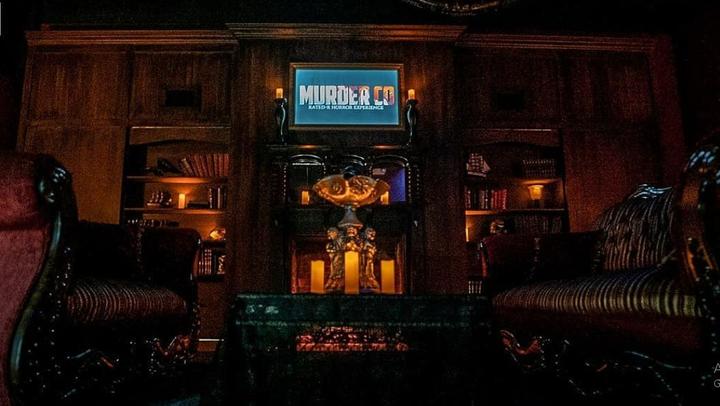Team Strategies: Just How to Collaborate Successfully in an Escape Room
Navigating the complexities of an escape room requires more than mere enthusiasm; it needs a well-coordinated strategy based in clear interaction, calculated duty jobs, and skilled time administration. Groups need to actively listen per member's insights, designate functions that line up with specific staminas, and preserve regular check-ins to ensure focus and prevent redundancy. By cultivating an environment that values cohesion and adaptability, groups can considerably enhance their effectiveness and success prices. The nuances of these techniques can change the experience, however how precisely can they be applied to take full advantage of the possibility for success?
Establish Clear Interaction

To help with clear interaction, it is important to assign a central factor of contact for info dissemination. Quick, concentrated updates from each team member can keep the team educated without overwhelming them with info.
Designate Roles Tactically
While clear interaction sets the foundation for effective teamwork, designating roles tactically ensures that each employee's toughness are made use of successfully. In an escape area circumstance, the time-sensitive and complicated nature of obstacles necessitates an efficient technique to task delegation. By identifying and leveraging private proficiencies, groups can enhance their problem-solving capabilities and boost overall performance.
First, analyze the distinct abilities and characteristics of each participant. As an example, someone with an eager eye for information might succeed in locating covert things, while a rational thinker can be much better fit to solving puzzles - best escape room. It's equally important to have a leader who can oversee development, handle the timeline, and make crucial phone calls when needed. This duty commonly needs solid business and social skills.
Second, guarantee that functions are versatile and versatile. As brand-new obstacles arise, the group should be able to pivot, reallocating tasks as called for. This adaptability helps preserve energy and protects against bottlenecks that could take place as a result of stiff duty jobs.
Inevitably, a critical strategy to role assignment not just takes full advantage of the toughness of each employee yet likewise fosters a cohesive environment, driving the group in the direction of a successful retreat.
Use Diverse Skills
Acknowledging and harnessing the varied skills within your team can significantly raise your performance in a getaway space. Each team participant brings unique toughness to the table, and successfully leveraging these abilities can quicken analytical and boost general performance. For instance, a team participant with strong logical abilities might stand out at analyzing complex codes or patterns, while another with keen empirical navigate to this site abilities might swiftly spot concealed clues that others might ignore.
Encourage group participants to articulate their insights and ideas without delay, making certain that all possible remedies are thought about. In addition, appointing jobs that align with each participant's staminas can avoid bottlenecks and make certain that progress is continuous.
Moreover, variety in skills typically equates to diversity in thinking styles, which is vital in a getaway space setting. While some challenges may require sensible thinking and precision, others might take advantage of creative and lateral reasoning. By identifying and leveraging this variety, teams can address a broader variety of obstacles better, thereby enhancing their possibilities of an effective getaway.
Manage Time Effectively

First, designate preliminary mins for a quick study of the space. Recognize noticeable challenges and split jobs based upon employee' toughness, guaranteeing that no one is idle. Set internal time checkpoints to evaluate progress occasionally; for example, purpose to have half the challenges resolved by the mid-point of the game. This practice can aid keep the group concentrated and avoid important source time from escaping unnoticed.
Furthermore, avoid passage vision. If a challenge is taking also long, turn employee or move on to another difficulty, returning later on with fresh viewpoints. Communication is extremely important-- maintain every person updated on addressed challenges and remaining tasks to stay clear of redundant initiatives.
Lastly, use any tips or clues moderately however strategically - best escape room. Understanding when to ask for aid can save useful time. By sticking to these time management concepts, teams can dramatically enhance their possibilities of a successful and delightful escape area experience
Debrief and Show
Reflection is an important facet of group advancement and improvement in the context of escape areas. Once the obstacle is finished, whether effectively or not, it is critical for the team to participate in an organized debriefing session. This process enables employee to examine their performance, recognize toughness, and pinpoint areas for enhancement.
Begin the debrief by discussing what went well. Highlight details circumstances of effective communication, problem-solving, and cooperation. Identifying these favorable actions enhances them and urges their repeating in future difficulties.
Following, attend to the obstacles came across. Review minutes of confusion, miscommunication, or inefficient strategies. Encourage an open and constructive discussion where employee can share their perspectives without worry of objection. This fosters a culture of continuous improvement and discovering.
Conclusion
In conclusion, effective collaboration in a retreat area is asserted upon clear interaction, tactical duty projects, the efficient usage of click here for more varied skills, and skillful time administration. By producing a natural and adaptive team setting, the chance of efficiently fixing puzzles and accomplishing the objective of running away the room is substantially enhanced.